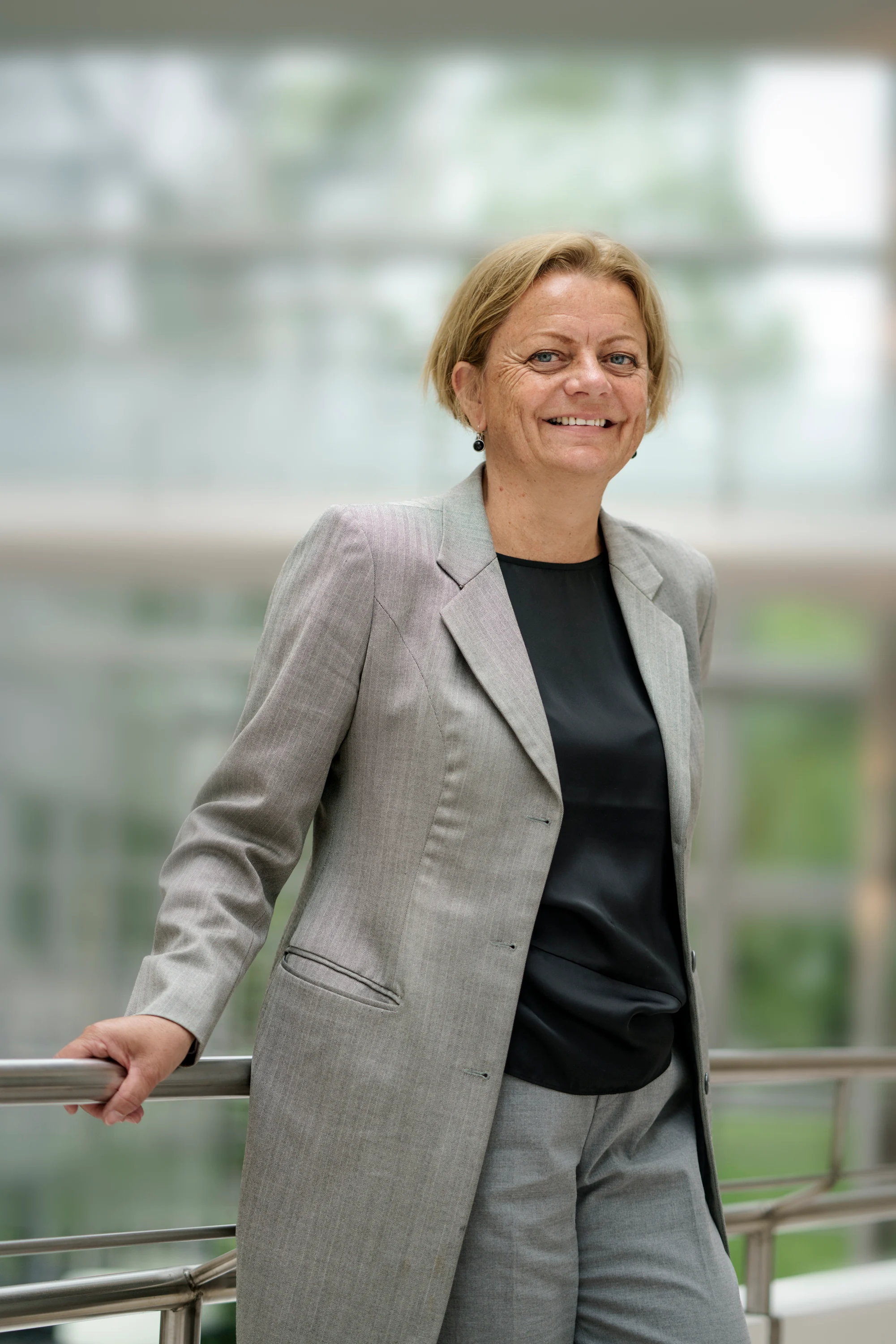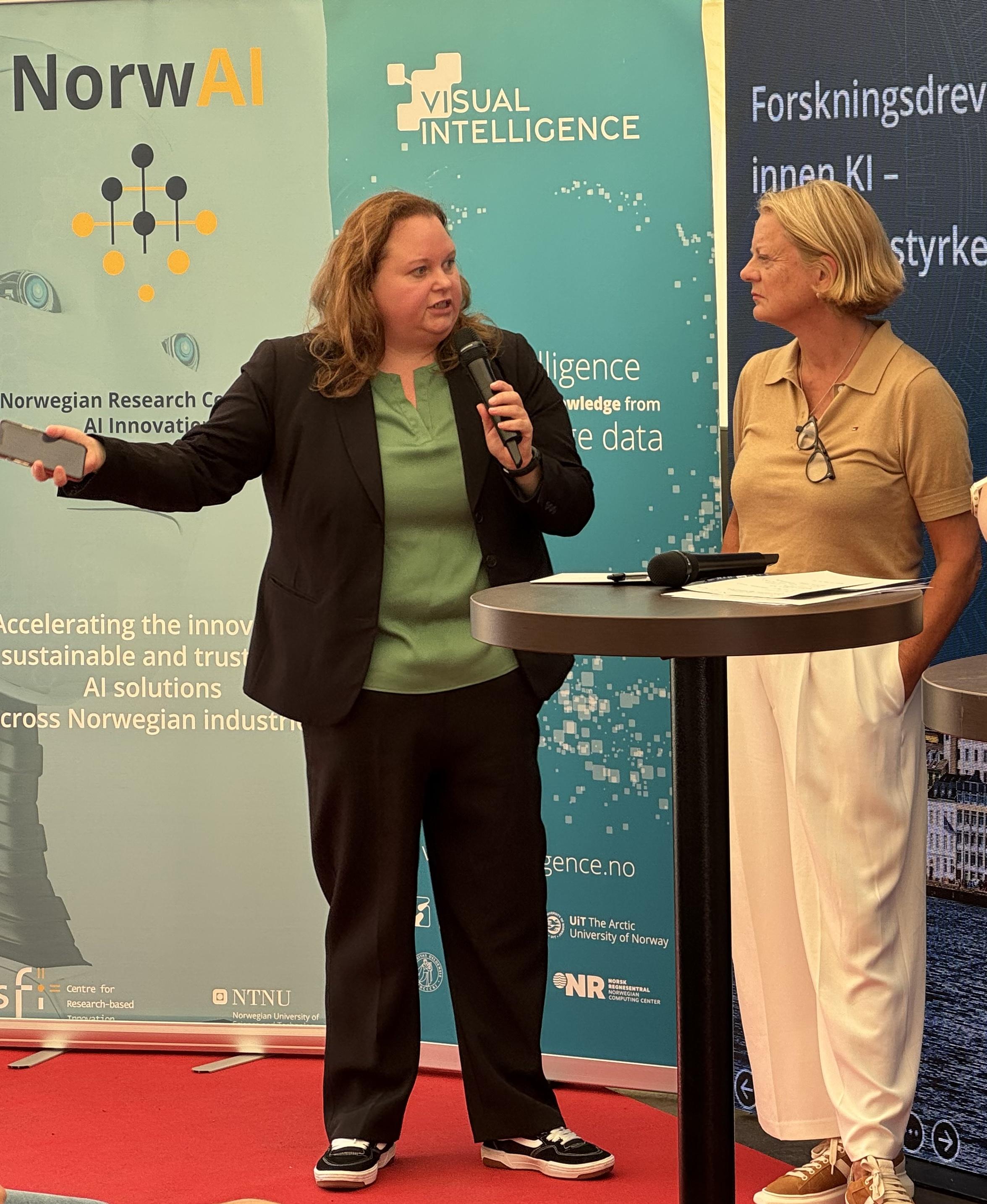AI for Ocean and Health: Key Areas for Norway’s Future
AI for Ocean and Health: Key Areas for Norway’s Future
Billions to AI research the last years – NOK 100 million for a maritim AI center is next
Over the years, the Research Council of Norway (NFR) has invested billions in research into artificial intelligence in Norway, most recently through the government's "AI billion". Health and maritime are two important areas of focus for further research and use of these technologies.

Division for Innovation in Industry and the Public Sector. Photo: Jonas Bendiksen
In an upcoming portfolio board meeting in the NFR in September, the board will decide on an allocation of 100 million to a new maritime research center for applied AI.
The purpose of the call is to establish a research center for the development and application of artificial intelligence (AI) for the benefit of the Norwegian maritime cluster. The center (MKI center) will connect research institutions and companies, and increase the rate of innovation and value creation for maritime companies through increased use of AI.
Anne Kjersti Fahlvik, Area Director for Innovation in Business and the Public Sector in the Research Council's senior management, says that the volume of research efforts within AI is good and increasing, that the quality of research is on the rise and interest in AI research is broad and strong in both the private and public sectors.
- But understanding the opportunities, and also the challenges of AI, using AI, and ensuring that we use AI to create value and to take positions in the AI economy, we must get better at it, says the regional director.
An ocean of opportunities
For Norway, the maritime sector is one of the domains where we should be strong and leading, also in the future, and also through the clever use of AI.
- The maritime research center will be unique and the first of its kind in the world. The initiative is attracting international attention, including in the countries with which we collaborate such as Brazil, the USA and Singapore to name a few, she says.
- Oceans and maritime are one of our flagship branches, and they also have increasing geopolitical roles, says Fahlvik when explaining the significance of the initiative, and its importance for international cooperation and visibility
Taking a broader view
Taking a step back to adopt a helicopter perspective on artificial intelligence, she emphasizes the importance of ensuring that the Research Council, in collaboration with research institutions and industry, establishes a strong link between research efforts and competitiveness — in line with the views presented in the so-called Draghi report on European competitiveness.
- We certainly have a job to do to, for example, strongly connect Norwegian research within health with the needs of society and with the opportunities in international markets for Norwegian health companies. There is great potential for value creation, in a broad sense, in existing resources such as health registries and biobanks in this country, she says.
Previously, the OECD has pointed out that the health field as such has not been able to benefit from digitalization and AI technologies, and Norway probably has the same challenge. This is an area we should follow up on, among other things because of the personnel and cost pressure on the public health services, says Anne Kjersti Fahlvik.
The KI billion
Fahlvik's area of responsibility in the NFR is innovation and enabling technologies such as KI and quantum in general, and also fields such as health and maritime. This includes instruments for knowledge-based innovation with the use of R&D in the private and public sectors, as well as in the interaction between the two sectors. Fahlvik's responsibility also includes innovation and early-phase commercialization from public research institutions.
The Research Council has just completed the "KI billion" in which six new centers were awarded research funds of 1.3 billion.
- We have advised the government to allocate funds for Norwegian KI research and innovation, and were assigned to direct efforts towards the societal effects of KI, KI and innovation as well as research on KI technologies. This "KI billion" grew somewhat along the way and 1.3 billion kroner was awarded to six centers for efforts over the next five years in June, says Anne Kjersti Fahlvik.
She says the KI billion will be an important contribution, and a kind of national KI spearhead, on top of an annual effort of nearly a billion for KI research, including through the SFI centers of which NorwAI is a part.
About NorwAI
- Among those who have previously received grants for KI purposes is NorwAI. What is your assessment of our work, if I may ask?
- We have several good KI research groups, and among others solid SFIs and SFFs in Tromsø, Trondheim, Bergen, Kristiansand and Oslo, she says.
When it comes to NorwAI, you have not only been a research center, but also active and visible in the public debate. You have been clear about Norway's need for heavy computing capacity and clear about the importance of Norwegian language models – and you received a good midterm grade, says Anne Kjersti Fahlvik.

By Rolf D. Svendsen
2025-09-04
